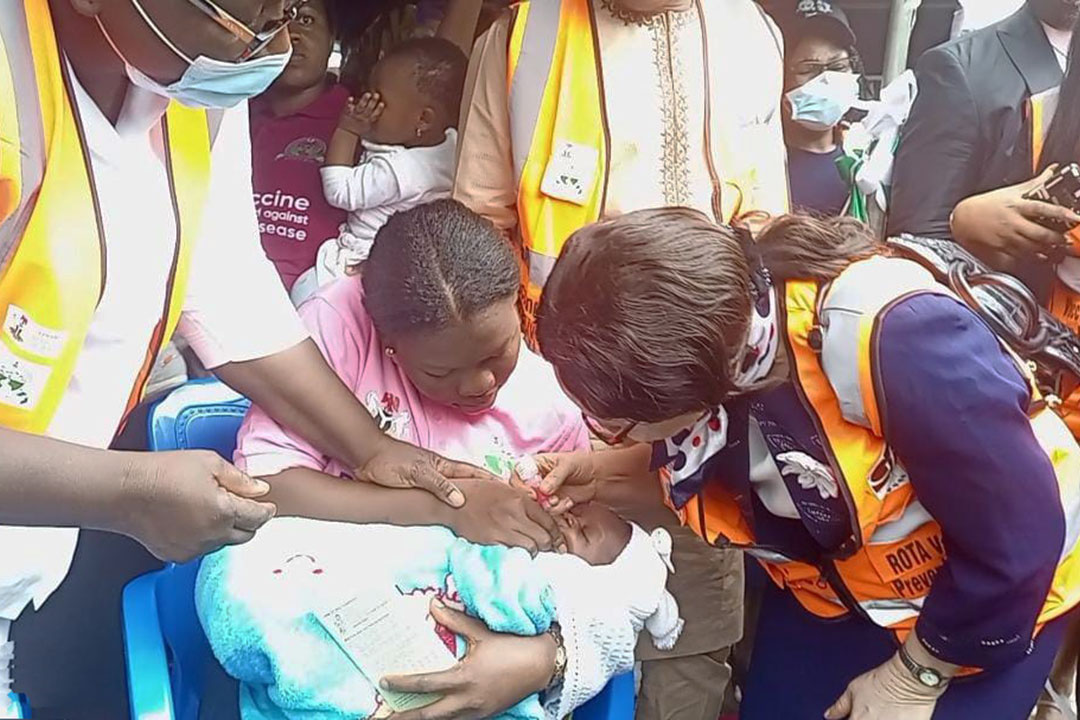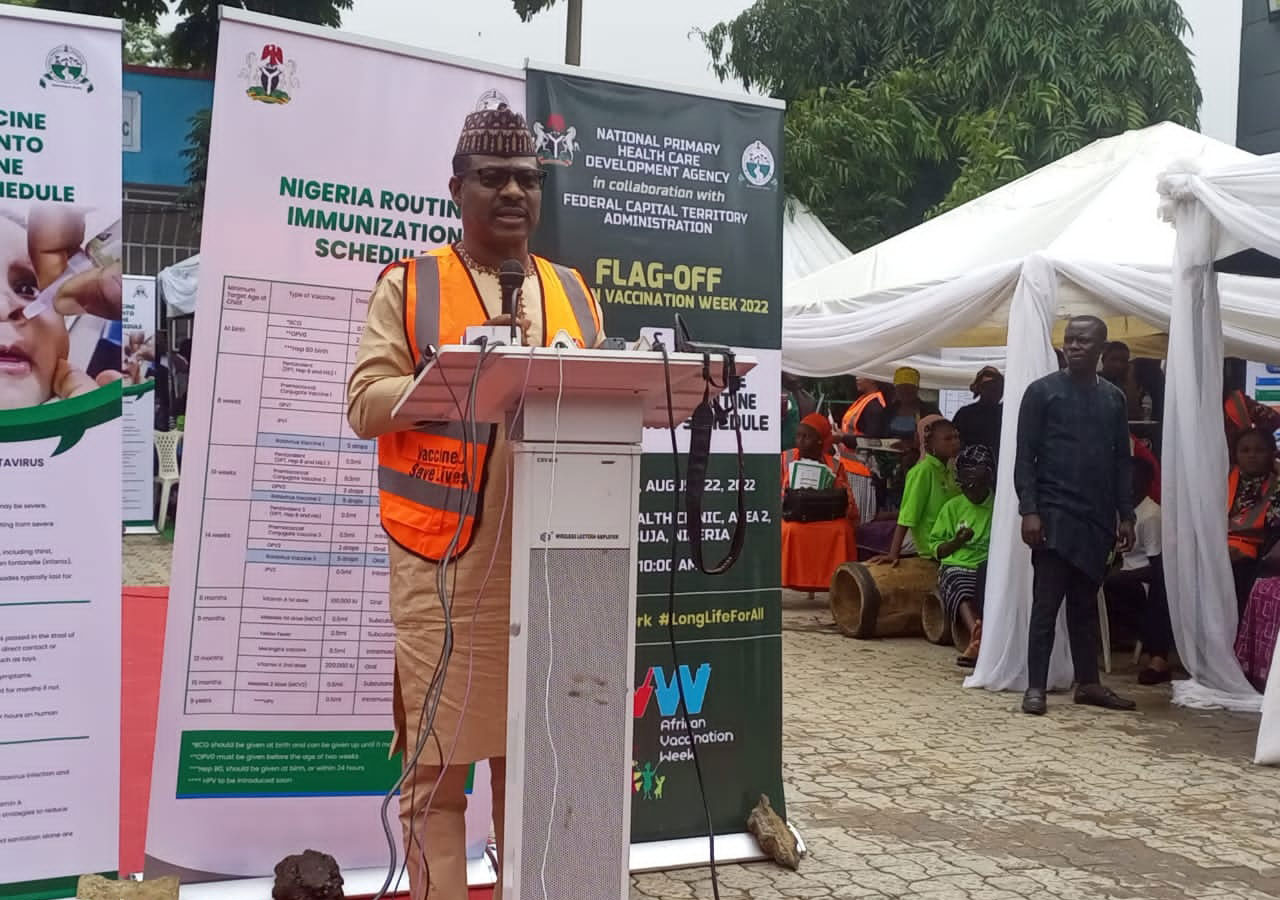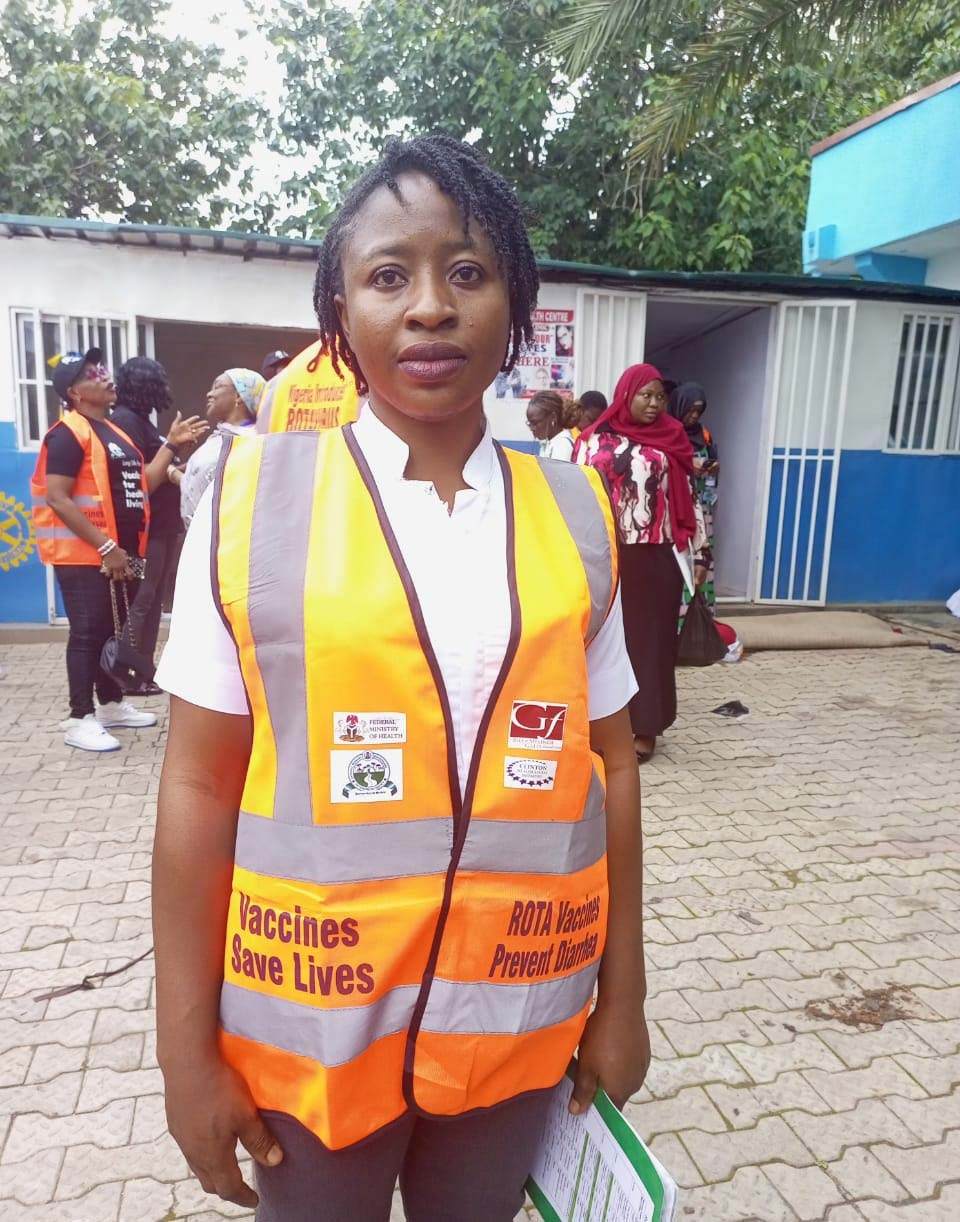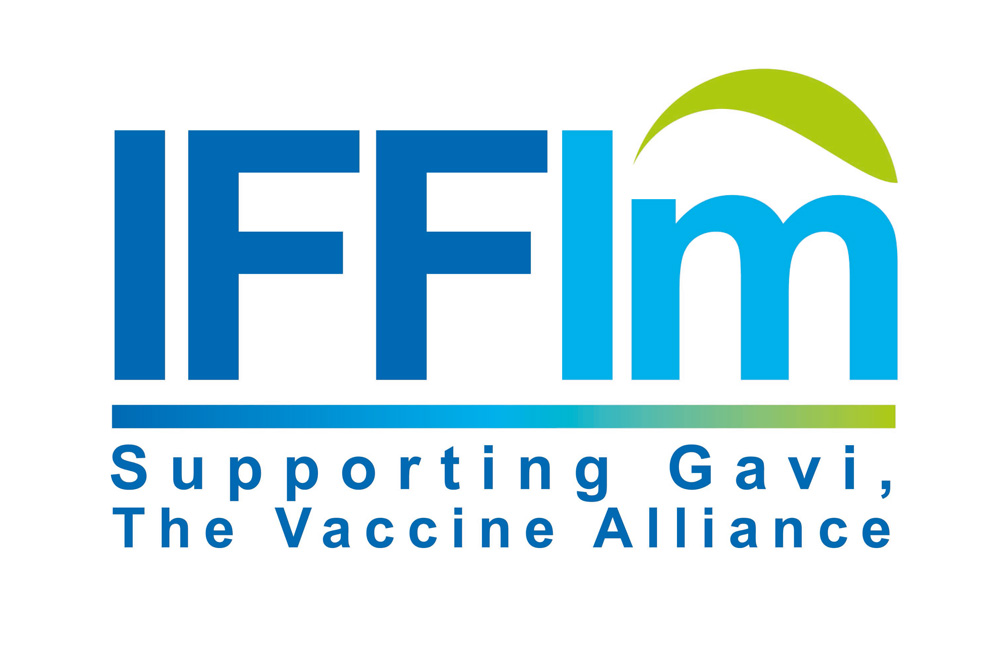Dealing with diarrhoea: Nigeria introduces rotavirus vaccine into its immunisation plan
- Impact
- Dealing with diarrhoea: Nigeria introduces rotavirus vaccine into its immunisation plan
Dealing with diarrhoea: Nigeria introduces rotavirus vaccine into its immunisation plan
30 August 2022

A baby receiving the rotavirus vaccine during the launch in Abuja. Photo credit: Ijeoma Ukazu.
Nigeria has the second highest number of rotavirus deaths in the world. The historic introduction of the vaccine into its routine immunisation system aims to change that.
Nigeria has the second highest number of rotavirus deaths in the world. The historic introduction of the vaccine into its routine immunisation system aims to change that.
By Ijeoma Ukazu
Announcements
IFFIm Impact: rotavirus
IFFIm recently disbursed US$ 88.5 million to Gavi’s rotavirus programmes for the 2021-2022 period. Since its inception IFFIm has disbursed a total of US$ 157.4 million to Gavi for rotavirus vaccine.
Rotavirus is a highly contagious, sometimes deadly, virus that commonly causes diarrhoea among infants and children under the age of five. Nigeria is particularly badly affected: approximately 50,000 Nigerian children under five die from the infection every year, 14% of the global total and the second highest number of deaths worldwide.
With the recent launch and integration of the rotavirus vaccine into the routine immunisation schedule in Nigeria, the country expects to reduce at least 40% of morbidity and mortality associated with rotavirus infections amongst children.
“I am very happy with the rotavirus vaccine launch because many mothers do not have the money to buy the vaccine and now they will be getting it for free.”
The Executive Director of the National Primary Health Care Development Agency, Dr Faisal Shuaib, says that the vaccine, which takes the form of oral drops, will be administered to infants at 6, 10 and 14 weeks, alongside other routine vaccines.

He goes on to say that the vaccine distribution will take place in phases, starting immediately with the 19 northern states with low immunisation coverage as well as the Federal Capital Territory. Phase two will focus on the 17 southern states of South West, South East and South South in October 2022.
He adds: “The introduction of the rotavirus vaccine is a big investment and, potentially, can have a substantial economic impact and save many lives. It is projected that the rotavirus vaccine introduction has the potential to avert over 110,000 deaths over 10 years in the country.”
Dr Walter Kazadi Mulombo, the WHO Country Representative in Nigeria, says: “Nigeria should continue to implement these strategies to address gaps in immunisation through the life course and to prevent deaths. If we stop vaccination, deadly diseases will return, and when people are not vaccinated, infectious diseases that have become uncommon can quickly return.”
The impact of the rotavirus vaccine
Health worker and Head of Department at the School Health Unit, Primary Health Care Board FCT, Calista Obasi, is excited about the rollout. “The vaccine will bring protection and safeguard the health of every Nigerian child, with the number of diarrhoea cases presented at healthcare facilities being too many to quantify at present. I am positive that this narrative will change going forward with the introduction of the rotavirus vaccine.”

Photo credit: Ijeoma Ukazu
Obasi maintains that the integration of the vaccine with routine immunisation is a big step in ensuring no child is left out. She adds that the wide reach recorded with routine immunisation is a result of efforts by healthcare professionals to penetrate every nook and cranny of the country, especially hard-to-reach areas.
Agwu Deborah, a Community Health Extension Worker (CHEW) at the family health clinic, FCT, says, “I am very happy with the rotavirus vaccine launch because many mothers do not have the money to buy the vaccine and now they will be getting it for free.”

Photo credit: Ijeoma Ukazu
Khadijat Aminu, a mother who was at the facility to immunise her fourth child, says, “I don’t have any issue allowing an additional vaccine administered to my child, since I have never experienced any harsh adverse effects with previous routine immunisation. My three older children have experienced diarrhoea one time or the other, so coming here and learning that there is a vaccine that can help to ensure no more diarrhoea is a thing to be thankful for. I am grateful.”
 |
This article is republished from VaccinesWork under a Creative Commons license. Read the original article. |
Share this article
Restricted Access Library
 The material in this Restricted Access Library is intended to be accessed only by persons with residence within the territory of a Member State of the European Union and is not intended to be viewed by any other persons. The material in this Restricted Access Library is provided by IFFIm for information purposes only and the materials contained herein were accurate only as of their respective dates. Certain information in the materials contained herein is not intended to be, and is not, current. IFFIm accepts no obligation to update any material contained herein.
The material in this Restricted Access Library is intended to be accessed only by persons with residence within the territory of a Member State of the European Union and is not intended to be viewed by any other persons. The material in this Restricted Access Library is provided by IFFIm for information purposes only and the materials contained herein were accurate only as of their respective dates. Certain information in the materials contained herein is not intended to be, and is not, current. IFFIm accepts no obligation to update any material contained herein.
Persons with residence outside the territory of a Member State of the European Union who have access to or consult any materials posted in this Restricted Access Library should refrain from any action in respect of the securities referred to in such materials and are otherwise required to comply with all applicable laws and regulations in their country of residence.
By clicking Access restricted content: DYNAMIC-LINK-TEXT I confirm that I have read and understood the foregoing and agree that I will be bound by the restrictions and conditions set forth on this page.
The materials in this Restricted Access Library are for distribution only to persons who are not a "retail client" within the meaning of section 761G of the Corporations Act 2001 of Australia and are also sophisticated investors, professional investors or other investors in respect of whom disclosure is not required under Part 6D.2 of the Corporations Act 2001 of Australia and, in all cases, in such circumstances as may be permitted by applicable law in any jurisdiction in which an investor may be located.
The materials in this Restricted Access Library and any documents linked from it are not for access or distribution in any jurisdiction where such access or distribution would be illegal. All of the securities referred to in this Restricted Access Library and in the linked documents have been sold and delivered. The information contained herein and therein does not constitute an offer for sale in the United States or in any other country. The securities described herein and therein have not been, and will not be, registered under the U.S. Securities Act of 1933, as amended (the "Securities Act"), and may not be offered or sold in the United States except pursuant to an exemption from, or in a transaction not subject to, the registration requirements of the Securities Act and in compliance with any applicable state securities laws.
Each person accessing the Restricted Access Library confirms that they are a person who is entitled to do so under all applicable laws, regulations and directives in all applicable jurisdictions. Neither IFFIm nor any of their directors, employees, agents or advisers accepts any liability whatsoever for any loss (including, without limitation, any liability arising from any fault or negligence on the part of IFFIm or its respective directors, employees, agents or advisers) arising from access to Restricted Access Library by any person not entitled to do so.
"Relief" for mothers in Bayelsa state as malaria vaccine makes waves
07 November 2025
